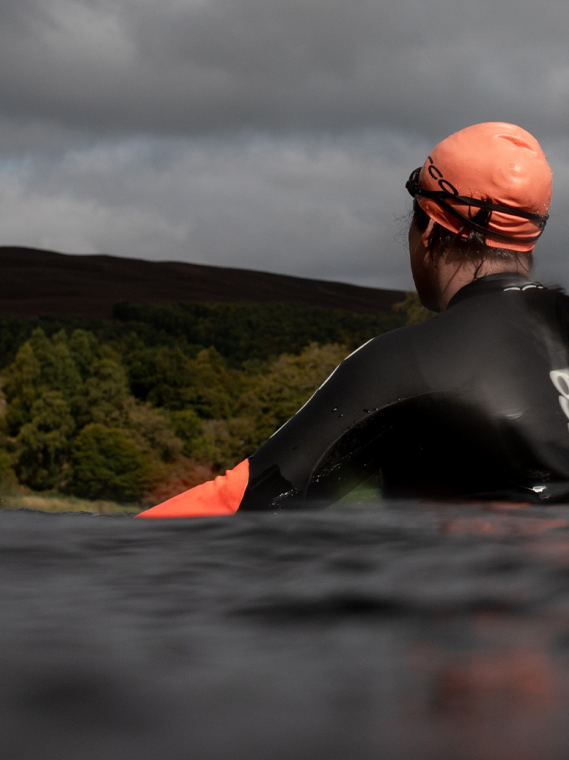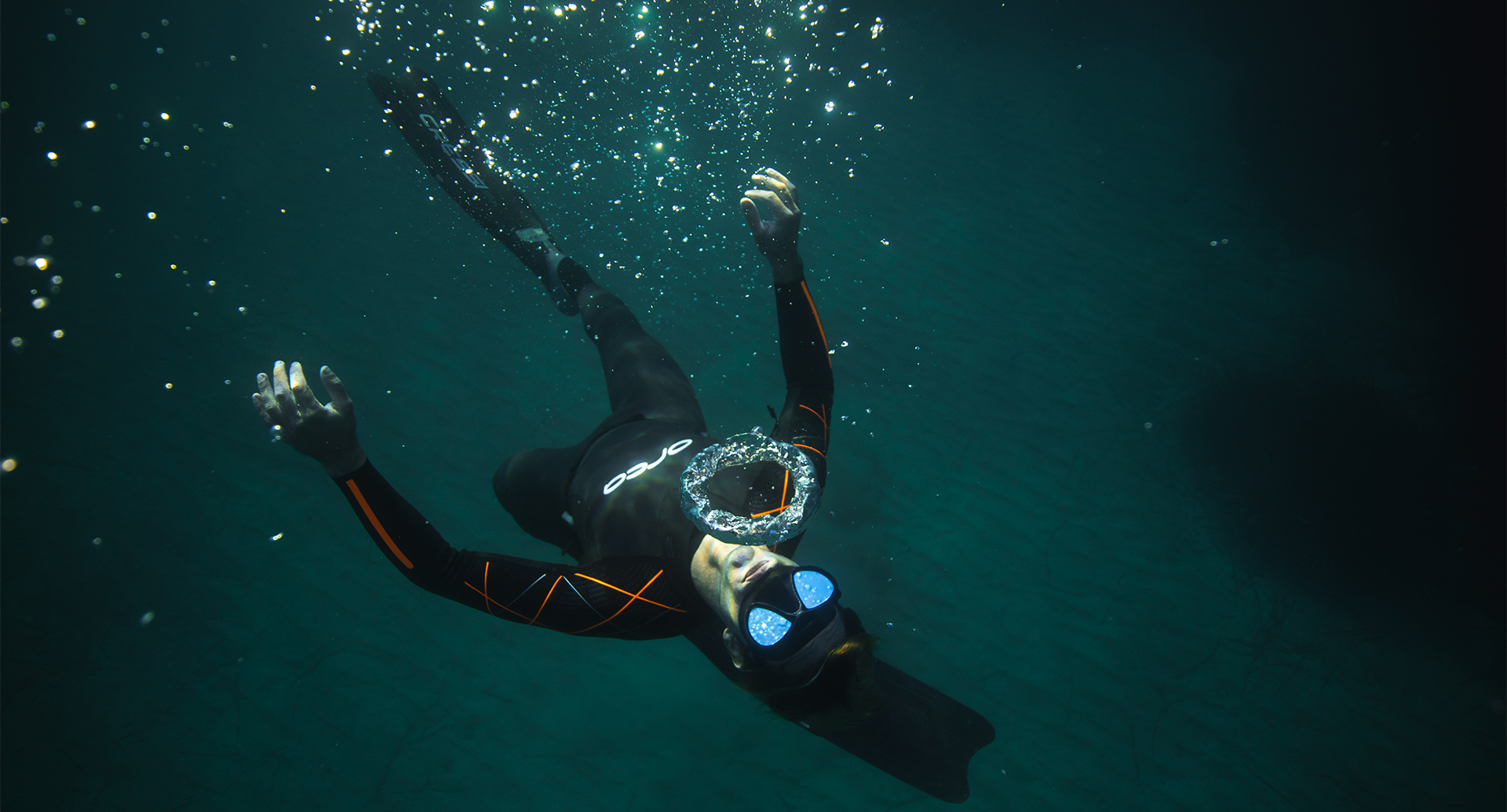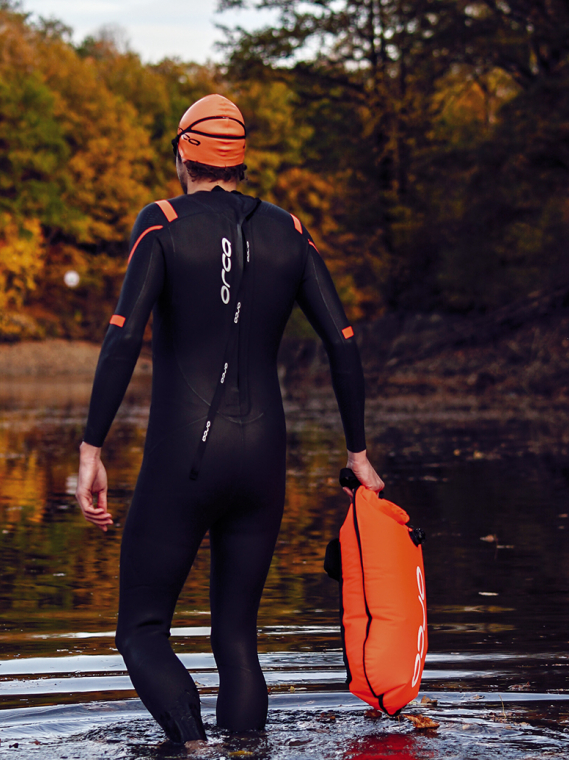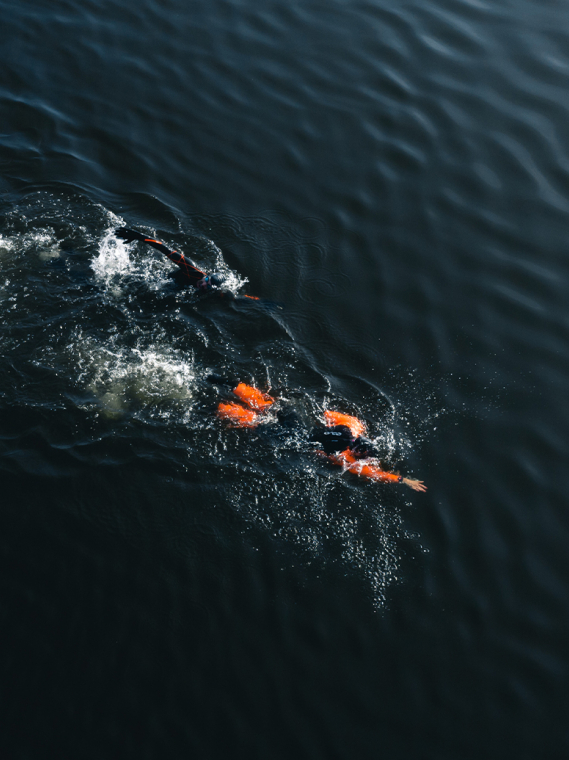
Swimming in cold water, benefits for body and mind
Entry-level
March 31, 2022 | 1 reading min.
Swimming in waters below 15º C, without lane dividers, without chlorine, in full contact with nature, and feeling that cold rush throughout your body,...
Olivier Courret is the founder of Mind Your Brain. He is a Certified Clinical Hypnotherapist, Mental Coach, NLP master, 3 times triathlon Asia age group champion and leader of the Open Water Swimmers of Hong Kong. Olivier talks about his relationship with

Olivier Courret is the founder of Mind Your Brain. He is a Certified Clinical Hypnotherapist, Mental Coach, NLP master, 3 times triathlon Asia age group champion and leader of the Open Water Swimmers of Hong Kong. Olivier talks about his relationship with open water swimming and how it has transformed completely his life.
OLIVIER COURRET - Founder of Mind Your Brain
Many years ago, open water swimming sounded scary to me. The fear of the unknown, no blue line to follow, the absence of the reassuring sight of the pool deck, the murky water, and the waves. What if I couldn’t stay afloat? What if there was something underneath me? What if I couldn’t keep up with the group? I had so many reasons not to try. But, I was contemplating racing an aquathlon (a fun race format including repetitions of swim and run) and possibly a triathlon, so skipping open water training was not an option. I decided to take the plunge.
THE FIRST INTIMIDATING STROKES
With a certain anxiety I joined the open water swimmers of Hong Kong for my first session. This newly formed group of die-hard swimmers was meeting every Saturday morning. It was quite intimidating. Fortunately, I was warmly welcomed by Lloyd, the founder and leader of the group who reassured me with a strong Australian accent that he would be waiting for me so I could just take it easy.
My heart was pounding as we were about to hit the water, I started too fast, held my breath, tensed my muscles, rotated too much in hope for more time to breath. When I looked up, everyone was so far away. Now my breathing was shallow, and my heart was still beating rapidly. What if I just give up and return to the beach now? Yet, Lloyd was effortlessly gliding alongside me, suggesting I “Slow down, keep your head down and exhale in the water, stop fighting, glide mate”. I nodded, focused on my exhale and was able to slow down. I started to glide, and it became easier. I relaxed, finally felt comfortable, and I was hooked.
A PIVOTAL PART OF MY LIFE
Swim after swim I realized it was about breathing. Each slow and long exhale under water releases the tension in the body. It is not the lack of inhale, but the lack of exhale that becomes exhausting.
Soon I learned not to ‘fight’ the ocean, rather become one with the water. I learned to glide with the waves. I discovered the absence of a pool line was an invitation to explore, and the absence of visibility provided an unusual calm and induced in fact a meditative state. Before I knew it, open water became a pivotal part of my life.
BENEFITS OF OPEN WATER SWIMMING
I came to learn although the fitness rewards of swimming are well known, it is the mental benefits of open water swimming that are the most extraordinary.
1. Break from the stress and anxiety
First, since you focus on long exhales, you learn to regulate your breath into a calm and relaxing rhythm that triggers the parasympathetic nervous system. Under that mode, your body recovers and heals faster and your neocortex (the modern part of the brain responsible for your rational thought, imagination and creativity) is fully operating.
Under stress, the sympathetic nervous system is triggered. Our reptilian brain takes over and thinking rationally and reasonably gets compromised. As an added bonus, the healing process shuts down. This mode is also known as flight and fight. A mode designed to be activated only for a couple of minutes at a time.
Swimming and breath regulation provide a well needed break from the stress and anxiety of our busy life.
2. Clarity, calm, serenity
Second, the absence of a wall means you can swim for hundreds of meters without stopping.
Once you get into a steady pace, your body goes auto-pilot and you enjoy minutes of calm and focus that induce a meditative state. The benefits of meditation and mindfulness are well established and you can get all that within a single swim: clarity, calm, serenity.
3. Learn about your inner self
Third, you learn about your inner self. It is true open water can be daunting at first, but I can assure as you face your fears, fight your inner demon, slay the dragon of the unknown you break the threshold of your own limitations. You learn to be respectful of the ocean, be mindful of the risks, and that your fears are mostly the product of your imagination.
As long as you remain in the here and now, control your breathing and remain mindful of your environment you learn to move beyond your limitations.
Whether you make it outside the safety net for the first time or swim your first 5km, the reward of overcoming your fears is always memorable. From there, swim after swim you continue to build that mental strength, and further use your imagination to create empowering and affirming thoughts.
4. Strengthen your resilience
Fourth, you learn about resilience. As you get more experienced, there is a moment in your swim life when you may want to swim longer or start racing. You are now ready to harvest the mental benefits of endurance sports. You start to venture outside your comfort zone, while realizing you can finish what you started, and that your body and mind are much stronger than you believed.
There is also that optional moment where you decide to swim as late as possible in the season without your wetsuit. You learn to be comfortable with the uncomfortable. Though it is cold, you have built that mental strength, you feel proud of yourself, and you gain a boost your immune system in the process. You learn to observe the sensation on your skin as you dive into the cold water and embrace the stinging and numbing feeling. Eventually you move beyond the cold in your mind, and feel strangely happy, alive, stronger, and motivated to achieve more.
5. Meet people from all backgrounds
Fifth, though we are not talking much in the water, it is the benefits out of the water of building a social life within a welcoming and supportive community that provide huge mental and emotional reward. After the swim, gathering with friends from all backgrounds, sharing stories about swimming, and about life. We are all the same in the water: a body, a swim suit, a pair of swim goggles, a swim cap and the same bright safety buoy. Age, gender, occupation, status, wealth, sexual preference, political opinion, religion no longer matter as we realize we are all deeply connected by our love for swimming.
Open water has transformed my life in so many ways, athletically, mentally and socially. I won 3 Asian Championship titles in Triathlon, changed my career and made countless friends within the community.
A few years ago, Lloyd moved back to Australia and asked me to run the Open Water swimmers of Hong Kong. Now I am the one swimming alongside anxious new swimmers, inviting them, with a smile, to exhale and glide. I know this is the beginning of a rewarding journey they can hardly imagine yet and I am grateful to be a part of it.
ABOUT OLIVIER COURRET
After a long career in the sports industry, Olivier Courret began to study how the mind works and its influence on sports performance, well-being and health. Born in Aix-en-Provence (France) and based in Hong Kong, he trained as a clinical hypnotherapist and mental coach in addition to earning a master's degree in neurolinguistic programming. Passionate about the mind and its power, he is a three-time Asian triathlon champion in his age group and currently leads the Hong Kong open water swimming team.
ABOUT MIND YOUR BRAIN
Mind Your Brain is a clinical hypnotherapy training method for improving athletic performance, personal well-being and health. They offer consultations, free classes and online courses on hypnotherapy and meditation to improve mental health and general well-being as well as athletic and everyday performance. In Olivier's words, the goal of Mind Your Brain is “to help people find their goals and achieve them” using the techniques he himself has learned professionally and personally over the years.

March 31, 2022 | 1 reading min.
Swimming in waters below 15º C, without lane dividers, without chlorine, in full contact with nature, and feeling that cold rush throughout your body,...

April 26, 2021
Every athlete is an individual and in open water swimming it is no different. The needs of one swimmer can be impediments or obstacles to another.

March 29, 2021
Like so many of us I’ve always loved the water, some of my earliest childhood memories involve splashing about in the waves with my family in Sidmouth...